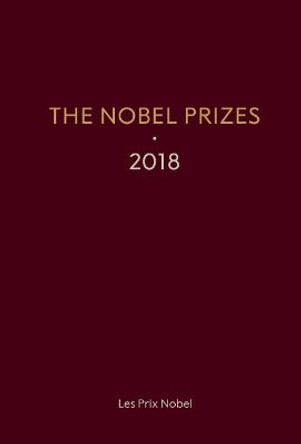Description
In this book, Kandel recounts his remarkable career since receiving the Nobel in 2000-or his experience of proving to his wife that he was not yet "completely dead intellectually." He takes readers through his lab's scientific advances, including research into how long-term memory is stored in the brain, the nature of age-related memory loss, and the neuroscience of drug addiction and schizophrenia. Kandel relates how the Nobel Prize gave him the opportunity to reach a far larger audience, which in turn allowed him to discover and pursue new directions. He describes his efforts to promote public understanding of science and to put brain science and art into conversation with each other. Kandel also discusses his return to Austria, which he had fled as a child, and observes Austria's coming to terms with the Nazi period. Showcasing Kandel's accomplishments, erudition, and wit, There Is Life After the Nobel Prize is a candid account of the working life of an acclaimed scientist.
About the Author
Eric R. Kandel is a University Professor and the Sagol Professor of Brain Science at Columbia University, where he is also codirector of the Mortimer B. Zuckerman Mind Brain Behavior Institute, and a senior investigator at the Howard Hughes Medical Institute. In 2000 he was awarded the Nobel Prize in Physiology or Medicine for his studies of learning and memory. He is the author of In Search of Memory: The Emergence of a New Science of Mind (2006), The Age of Insight: The Quest to Understand the Unconscious in Art, Mind, and Brain, from Vienna 1900 to the Present (2012), Reductionism in Art and Brain Science: Bridging the Two Cultures (Columbia, 2016), and The Disordered Mind: What Unusual Brains Tell Us About Ourselves (2018).
Reviews
This is an amazing book that gives us a peek inside the mind of one of the giants of contemporary neuroscience. While most of us struggle to succeed in a single discipline, Eric R. Kandel has excelled in three: first his discovery of the neural basis of memory-a discovery comparable to DNA; second, as an art historian successfully bridging art and neuroscience; and now, a parallel career, as a science writer of almost unparalleled excellence. -- V. S. Ramachandran, author of The Tell-Tale Brain: A Neuroscientist's Quest for What Makes Us Human
Of course Eric Kandel didn't stop doing experiments on learning and memory after he got a Nobel Prize; he would have had to become an entirely different person. But what did change, fortunately for the reader, is that he acquired the skill and confidence to convey deep scientific insights about the brain as they relate to a variety of subjects, such as abstract expressionist art, gender dysphoria, poverty, and morality. -- Margaret S. Livingstone, Takeda Professor of Neurobiology, Harvard Medical School
This is an inspiring and unique story of creativity, perseverance, and humanity from the most influential neuroscientist of his generation. -- Larry W. Swanson, University Professor, Appleman Professor of Biological Sciences, and Professor of Biological Sciences and Psychology, University of Southern California
In this slim but wide-ranging book, Eric R. Kandel-an escapee from Nazi Austria and a student of history and literature in college-reflects thoughtfully on his recent research as a benchtop neuroscientist, his experiences as a public communicator about brain and cognitive science, and his keen exploration of the arts. -- Howard Gardner, Hobbs Research Professor of Cognition and Education, Harvard Graduate School of Education
Eric Kandel is a scientific giant. As in his other wonderful books, he has a fascinating tale to tell in this one, and does it well. A great story to read. -- Joseph E. LeDoux, Henry and Lucy Moses Professor of Science, New York University, and author of The Deep History of Ourselves: The Four-Billion-Year Story of How We Got Conscious Brains
A short, cheerful memoir from an energetic Nobel laureate. * Kirkus *
In this remarkable recap of his post-prize career, Kandel's intellect and passion are present on every page. Readers will be awed by the depth and breadth of Kandel's work. * Publishers Weekly *
Has Eric Kandel rested on his laurels? No. [This book] adds to Kandel's respected literary oeuvre, which ranges from neuroscience textbooks to highly original popular science. * Nature *
The 'great joy' that [he derives from] explaining science to the public can also be felt in Kandel's new book. * Austrian Press Agency *
Accessible and interesting. . . . [Kandel has] a truly gifted mind with a facility for teaching, and a willingness to do so. Four stars. * Nonstop Reader *
Book Information
ISBN 9780231200141
Author Eric R. Kandel
Format Hardback
Page Count 120
Imprint Columbia University Press
Publisher Columbia University Press





